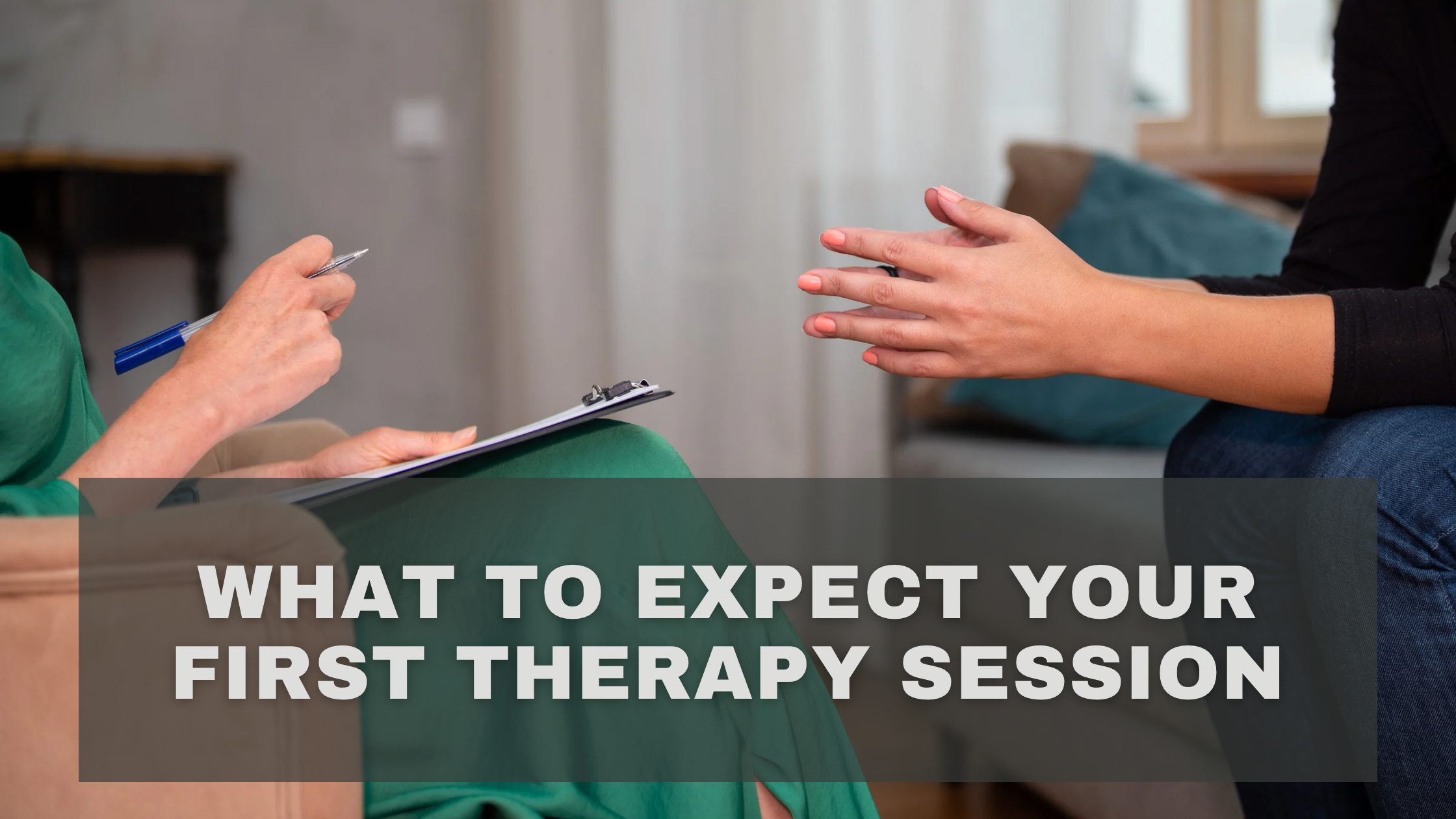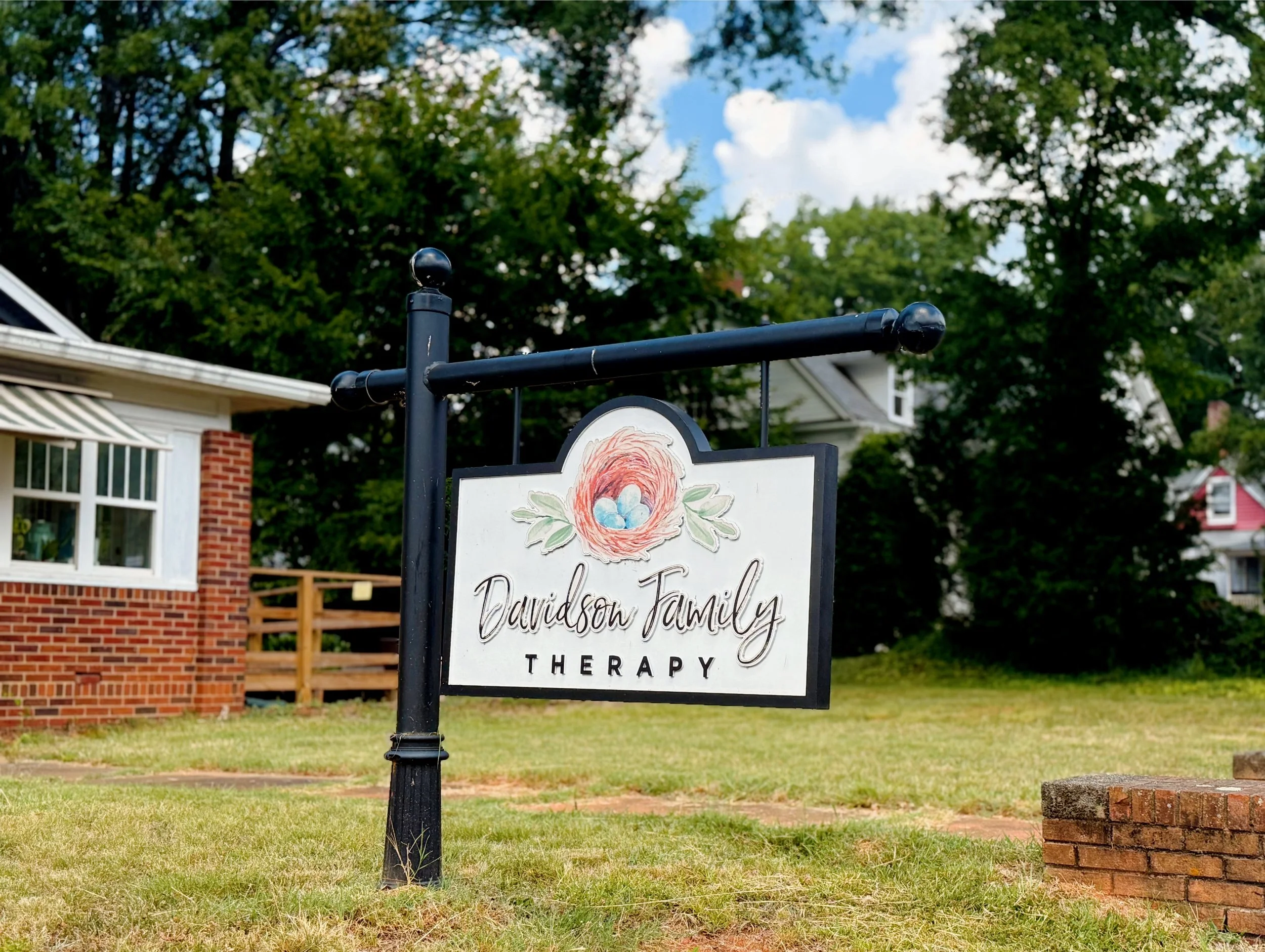What To Expect Your First Therapy Session
Thinking about going to therapy but not sure what really happens? You’re not alone. Many people have questions, worries, or even fears before their first therapy session. It’s natural to wonder what to expect—Will it be awkward? What if I cry? What will the therapist ask me?
The truth is, that first therapy session is simply the beginning of a supportive relationship designed to help you better understand yourself, manage life’s challenges, and start moving toward your goals. Whether you’re struggling with anxiety, depression, stress, relationships, or just want someone to talk to, your first therapy session is an important and empowering step.
At Davidson Family Therapy, we want to help you feel confident and informed before your first visit. In this article, we’ll walk you through what really happens, clear up a few common myths, and share tips to help you feel more comfortable when you take that first step—whether you’re joining us in person in Davidson or Cornelius, or connecting through our Tele-Mental Health (Online Therapy) option.
Myths About the First Therapy Session
Before we talk about what really happens in your first therapy session, let’s clear up a few common myths:
Myth #1: The therapist will judge me.
Not true. Your therapist’s role isn’t to judge—it’s to listen, understand, and support. Therapy is a confidential, safe space where you can speak openly without fear of criticism or shame. The goal of your first therapy session is to build trust, not to be evaluated or judged.
Myth #2: I have to have my life figured out first.
Many people believe they need to have a clear plan before starting therapy, but that’s not the case. You don’t need perfect words or an organized story. You just need to show up. Your therapist will help guide the conversation and work with you to uncover what’s really going on and what you want to focus on.
Myth #3: The first session is about fixing everything.
The first therapy session isn’t about solving everything right away—it’s about getting to know you. Think of it as the foundation for all future work together. Your therapist will ask questions, listen carefully, and begin to understand what brought you in. The process takes time, and that’s completely okay.
What Really Happens During Your First Therapy Session?
While every therapist and client is unique, most first therapy sessions follow a similar structure. Here’s what you can typically expect when you walk through the door—or log into your virtual session.
First Therapy Session
1. Introductions and Relationship Building
Like any new relationship, therapy begins with introductions. Your therapist will welcome you, explain their role, and start to get to know you. You’ll also have the chance to ask questions and share anything that helps you feel comfortable.
This early conversation is all about creating trust. It sets the tone for your therapy journey and helps both of you feel at ease.
2. Discussing What Brought You to Therapy
Your therapist will likely ask questions such as:
“What made you decide to start therapy now?”
“Have you ever been in therapy before?”
“What would you like to work on or change?”
There are no right or wrong answers. You can share as much or as little as you feel ready to. Remember—your first therapy session is just the start. You can always go deeper as you get more comfortable.
3. Exploring Your Goals & Expectations
Once your therapist understands a bit more about your situation, they’ll help you explore your goals for therapy. These might be specific—like reducing anxiety or improving communication—or more general, such as wanting to feel happier or more balanced.
This step ensures you and your therapist are working together toward the same outcomes. It also helps your therapist tailor their approach to your needs.
4. Understanding the Process
Your therapist will explain how sessions typically work, how often you’ll meet, and what to expect going forward. This is also when you’ll discuss confidentiality, your therapist’s approach (like cognitive-behavioral therapy, person-centered therapy, or family systems), and any logistical questions.
If you’re doing Tele-Mental Health or Online Therapy, your therapist will also ensure you’re comfortable with the technology and privacy features. Davidson Family Therapy uses secure, HIPAA-compliant platforms to ensure that your sessions are private, safe, and easy to access from anywhere in North Carolina.
5. Setting a Plan Together
By the end of your first therapy session, your therapist will likely summarize what you discussed and suggest a plan for moving forward. This may include topics to explore in future sessions, coping strategies to try, or frequency of visits.
This plan isn’t set in stone—it evolves as your therapy progresses. The first session simply lays the groundwork.
Tips to Make Your First Therapy Session Go Smoothly
Starting something new—especially something personal—can be nerve-wracking. Here are a few tips to help make your first therapy session as comfortable and productive as possible:
Be Honest (Even if It’s Hard)
You don’t need to share everything right away, but honesty helps your therapist understand your experience. It’s okay to say, “I’m not sure how to explain it,” or “I don’t know where to start.” Your therapist is there to help you find the words.
Ask Questions
Therapy is a collaboration. If you’re curious about your therapist’s background, approach, or methods—ask! Understanding how therapy works can help you feel more confident and engaged in the process.
Acknowledge Your Nerves
Feeling nervous is completely normal. Most people feel some anxiety before their first therapy session. Remember, your therapist expects that and will help you ease into it.
Set Realistic Expectations
You don’t have to “fix” everything in one session. Think of therapy as a journey. Each session builds on the last, helping you uncover new insights and develop healthy tools over time.
Why Your First Therapy Session Matters
The first therapy session is about building a relationship based on trust, understanding, and respect. It’s your opportunity to find out if your therapist feels like a good fit. The therapeutic relationship itself is one of the most powerful parts of therapy—it’s where healing begins.
At Davidson Family Therapy, our licensed clinicians provide compassionate, evidence-based care for individuals, couples, and families. We understand that taking the first step can be hard, but it’s also one of the most courageous things you can do for your mental health.
Online Therapy: Bringing Care to You
If you can’t make it into the office or prefer to meet from home, we also offer Tele-Mental Health (Online Therapy) for anyone located in North Carolina.
With online therapy, you’ll receive the same quality of care, comfort, and confidentiality—without the commute or waiting room. All you need is a private space and an internet connection.
Take the First Step Today
If you’ve been thinking about starting therapy, consider scheduling your first therapy session today. You deserve support, understanding, and a safe space to grow.
At Davidson Family Therapy, we’re here to walk with you every step of the way—whether in person or online.
Contact Us
📞 Phone: 704-912-4095
📍 Davidson Office:
709 Northeast Drive, Suite 22
Davidson, NC, 28036
📍 Cornelius Office:
20501 N Main Street
Cornelius, NC, 28031
👉 Tele-Mental Health / Online Therapy Available Anywhere in North Carolina


